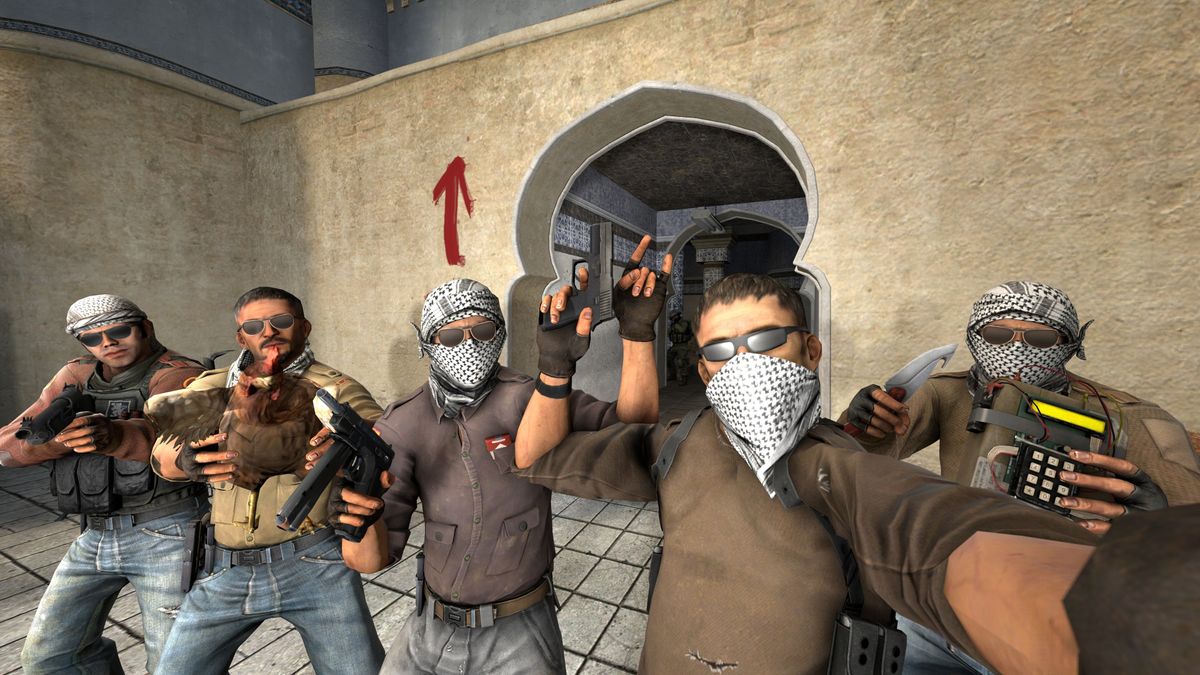Exploring Canadian Watercraft: Tips and Trends
Discover the latest in Canadian watercraft – from Lake Ontario fishing boats to kayaking in the Rockies.
Griefing Roulette: What Happens When CSGO Players Push Their Luck?
Explore the wild world of Griefing Roulette in CSGO! Discover the shocking risks players take and the chaos that ensues.
Exploring Griefing Roulette: The Risks and Rewards for CSGO Players
Exploring Griefing Roulette in Counter-Strike: Global Offensive (CSGO) adds an unpredictable twist for players navigating the competitive landscape. This phenomenon involves players intentionally disturbing or sabotaging their teammates, often leading to an atmosphere of tension and frustration. While some may see it as a form of reckless fun, others argue it undermines the team's objective, balancing the fine line between entertainment and sportsmanship. The risks associated with griefing include potential bans and a tarnished reputation within the community, significantly impacting a player's experience in the game.
On the other hand, there are undeniable rewards for those who engage in griefing roulette, primarily in the realm of viral content creation and social interactions. Players can grow their online presence by sharing hilarious or outrageous gameplay moments where griefing occurred, captivating audiences across platforms like Instagram and TikTok. However, this comes at the cost of facing potential backlash from the community, with many players advocating for respect and collaborative play. Thus, while exploring griefing roulette can be entertaining, it's essential to weigh the rewards against the associated risks carefully.

Counter-Strike is a popular tactical first-person shooter that has captivated players around the world. One of the exciting features in the game is the ability to customize your weapons through various skins which you can obtain through methods like dmarket case opening or trading. The competitive scene of Counter-Strike has also inspired professional tournaments and a massive esports community.
What Is Griefing Roulette and How Does It Impact CSGO Gameplay?
Griefing Roulette is a term used in the context of the popular first-person shooter game Counter-Strike: Global Offensive (CSGO). It refers to a phenomenon where players intentionally sabotage their own team's efforts by engaging in disruptive behaviors, such as team killing, providing false information, or obstructing teammates. This aggravating practice can greatly diminish the gaming experience for everyone involved, as it leads to frustration and often results in the affected team losing rounds. Understanding how griefing roulette operates is essential for both players and developers, as it highlights the need for better community management and player behavior enforcement systems.
The impact of griefing roulette on CSGO gameplay is both immediate and long-lasting. From a gameplay perspective, it disrupts team coordination and strategy execution, leading to unbalanced matches that can skew stats and rankings. Players who experience griefing may become demotivated, causing them to leave the game or, worse, engage in toxic behavior themselves. In the long run, this cycle can harm the overall health of the CSGO community. To combat this negativity, players are encouraged to report griefers and to foster a more supportive environment, which ultimately enhances the gameplay experience for everyone.
Can Griefing Roulette Lead to Unforeseen Consequences in CSGO Matches?
In the competitive world of CSGO, players often explore various strategies to gain an edge over their opponents. One tactic that has gained notoriety is known as griefing roulette. This phenomenon involves players intentionally sabotaging their own team in unpredictable ways to disrupt the game. While some may view this as a humorous way to engage with the game, it can lead to significant issues, such as increased player frustration and a toxic gaming environment. As teams are forced to adapt to unpredictable changes, the overall performance can suffer, making it hard to secure victory.
Moreover, the repercussions of griefing roulette extend beyond individual matches. Players who frequently engage in this behavior risk facing serious consequences, including bans from the game or a tarnished reputation within the community. This not only affects the griefer but also their teammates, who may have to deal with the fallout and lost opportunities in competitive gameplay. The potential for unforeseen consequences makes it crucial for players to reflect on their choices and consider how their actions impact not just themselves, but the entire CSGO community.